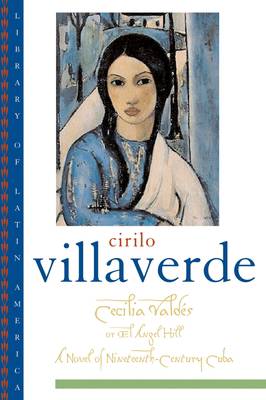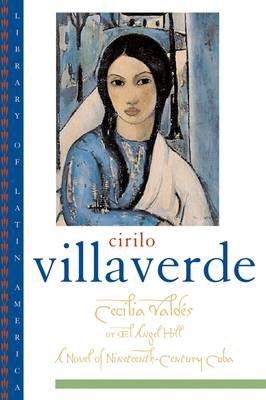
- Retrait gratuit dans votre magasin Club
- 7.000.000 titres dans notre catalogue
- Payer en toute sécurité
- Toujours un magasin près de chez vous
- Retrait gratuit dans votre magasin Club
- 7.000.000 titres dans notre catalogue
- Payer en toute sécurité
- Toujours un magasin près de chez vous
42,45 €
+ 84 points
Description
Cecilia Valdés is arguably the most important novel of 19th century Cuba. Originally published in New York City in 1882, Cirilo Villaverde's novel has fascinated readers inside and outside Cuba since the late 19th century. In this new English translation, a vast landscape emerges of the moral, political, and sexual depravity caused by slavery and colonialism. Set in the Havana of the 1830s, the novel introduces us to Cecilia, a beautiful light-skinned mulatta, who is being pursued by the son of a Spanish slave trader, named Leonardo. Unbeknownst to the two, they are the children of the same father. Eventually Cecilia gives in to Leonardo's advances; she becomes pregnant and gives birth to a baby girl. When Leonardo, who gets bored with Cecilia after a while, agrees to marry a white upper class woman, Cecilia vows revenge. A mulatto friend and suitor of hers kills Leonardo, and Cecilia is thrown into prison as an accessory to the crime.
For the contemporary reader Helen Lane's masterful translation of Cecilia Valdés opens a new window into the intricate problems of race relations in Cuba and the Caribbean. There are the elite social circles of European and New World Whites, the rich culture of the free people of color, the class to which Cecilia herself belonged, and then the slaves, divided among themselves between those who were born in Africa and those who were born in the New World, and those who worked on the sugar plantation and those who worked in the households of the rich people in Havana. Cecilia Valdés thus presents a vast portrait of sexual, social, and racial oppression, and the lived experience of Spanish colonialism in Cuba.
For the contemporary reader Helen Lane's masterful translation of Cecilia Valdés opens a new window into the intricate problems of race relations in Cuba and the Caribbean. There are the elite social circles of European and New World Whites, the rich culture of the free people of color, the class to which Cecilia herself belonged, and then the slaves, divided among themselves between those who were born in Africa and those who were born in the New World, and those who worked on the sugar plantation and those who worked in the households of the rich people in Havana. Cecilia Valdés thus presents a vast portrait of sexual, social, and racial oppression, and the lived experience of Spanish colonialism in Cuba.
Spécifications
Parties prenantes
- Auteur(s) :
- Editeur:
Contenu
- Nombre de pages :
- 544
- Langue:
- Anglais
- Collection :
Caractéristiques
- EAN:
- 9780195143959
- Date de parution :
- 29-09-05
- Format:
- Livre broché
- Format numérique:
- Trade paperback (VS)
- Dimensions :
- 142 mm x 209 mm
- Poids :
- 598 g







